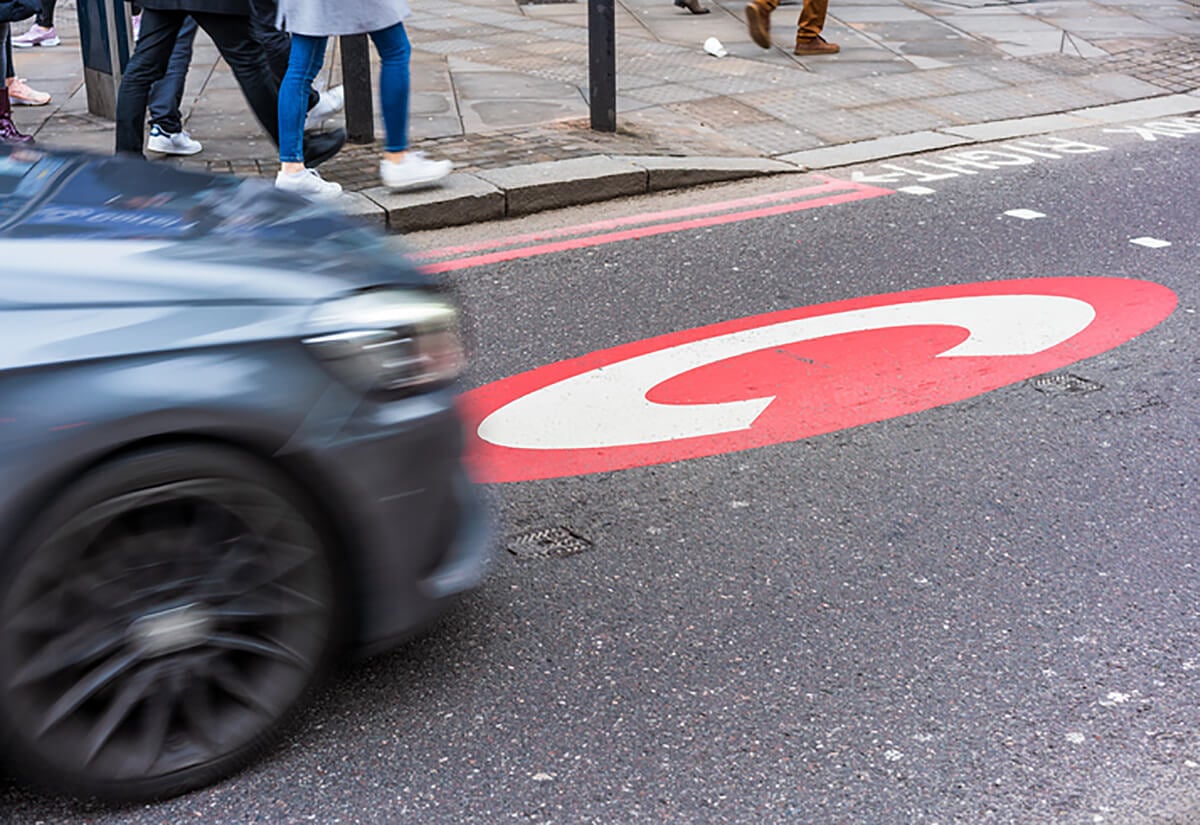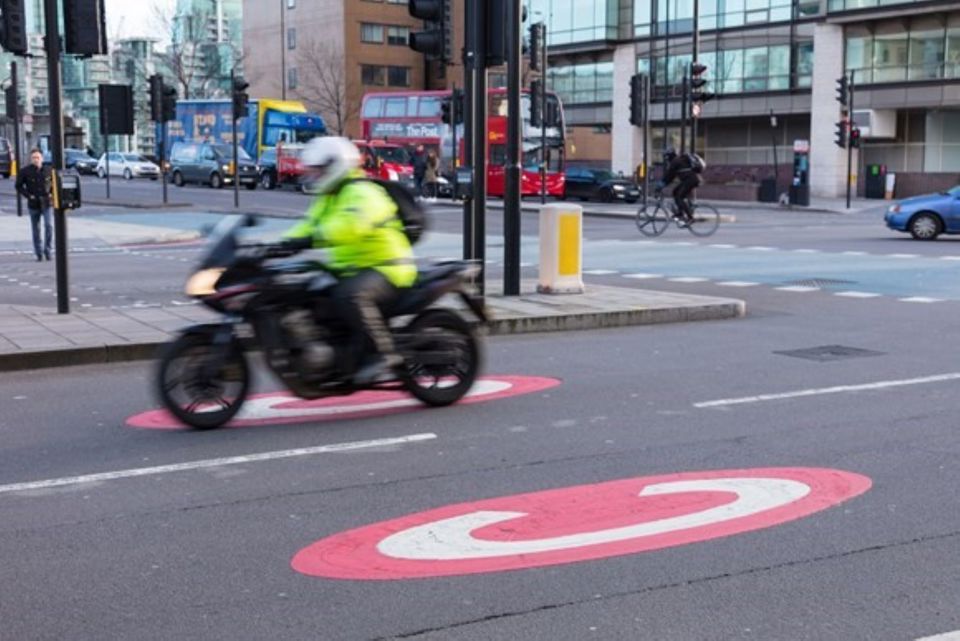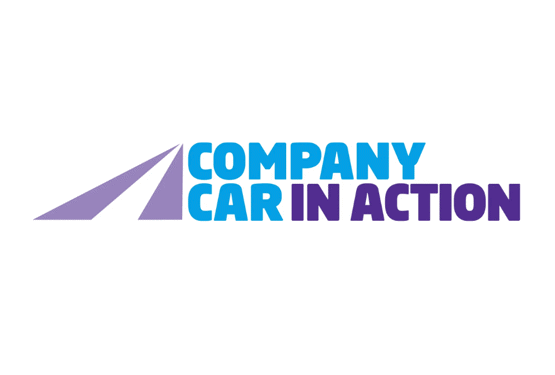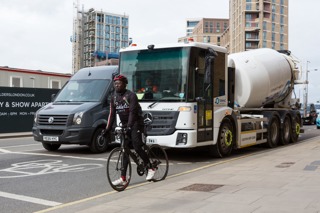Views are being sought to increase a daily congestion charge by 20%, from £15 to £18, with discounts planned for a range of electric vehicles (EVs).
Transport for London (TfL) has launched a consultation on a number of changes to the congestion charge, including the increase from January 2, 2026 – the first in five years.
TfL is also consulting on changes to road user charging guidance, which would allow the congestion charge to be increased each year in line with tube fares, inflation plus 1% or a lower amount.
These annual increases would only apply to the congestion charge and not London’s ultra-low emission zone (ULEZ).
With the 100% discount currently applying to all EVs due to end on December 25, TfL is also proposing a new cleaner vehicle discount (CVD) from January 2026.
It will offer discounts for journeys that are harder to switch to walking, cycling and public transport, such as those made by vans for commercial purposes.
TfL says that the volume of EVs seen in the zone means a continued 100% discount would lead to worsening traffic and congestion.
However, in order to continue to support further adoption of zero-emission vehicles, it is proposing some support remains.
Two phases of changes are proposed, with the new discounts halving in 2030 as the eligible vehicle numbers are expected to increase over time.
From January 2, 2026, there would be a 50% discount for electric vans, heavy goods vehicles (HGVs), light quadricycles and heavy quadricycles registered for Auto Pay, alongside a 25% discount for electric cars also registered for Auto Pay.
From March 4, 2030, this would be reduced to a 25% discount for electric vans, HGVs, light quadricycles and heavy quadricycles, and a 12.5% discount for electric cars, registered for Auto Pay.
To make it easier for drivers to access the discount, it is proposed that it will be applied automatically from DVLA data, rather than having to separately register and prove a vehicle meets the standards.
If the changes go ahead, TfL stressed that drivers with eligible vehicles will need to sign up to Auto Pay to receive the discount.

TfL says it has assessed the proposals in this consultation against a ‘do nothing’ scenario, which would include the end of the current version of CVD at the end of the year.
Without TfL’s proposals, it estimates next year alone around 2,200 more vehicles would use the congestion charging zone on an average weekday during charging hours – leading to increased congestion and undermining the current scheme.
Seb Dance, deputy mayor for transport, says that keeping London moving by reducing congestion is “vital” for the city and its economy.
“The congestion charge has been a huge success since its introduction, but we must ensure it is fit-for-purpose,” he added.
“Sticking to the status quo would see around 2,200 more vehicles using the congestion charging zone on an average weekday next year.
“At the same time, we must support Londoners and businesses to use greener and more sustainable travel. That’s why I’m pleased we’re proposing that substantial incentives remain in place.
“We encourage everyone to have their say and respond to the public consultation.”
In 2024 alone, vehicle congestion is estimated to have cost the capital £3.85 billion, averaging £942 per driver.
From March 1, 2027, TfL is also proposing that eligible new applicants for the 90% residents’ discount will only be able to receive the discount for an EV.
This, it says, will help to incentivise the shift to the cleanest possible vehicles and give people moving into the zone time to plan ahead.
Those who are already registered for the discount ahead of this date will not see any changes, reflecting that they might be reliant on their current form of transport.
Christina Calderato, TfL’s director of strategy, said: “Since it was introduced in 2003, the congestion charge has been hugely successful in supporting the move to more walking, cycling and public transport and encouraging the uptake of the cleanest vehicles.
“With these proposed changes we want to make sure it continues to be effective in managing traffic and congestion in central London while providing ongoing support to those who need to drive in the zone to make the switch to an electric vehicle.
“I would encourage people to respond to the consultation to help shape our plans.”
When the congestion charge was introduced in 2003, there was a 30% reduction in congestion within the zone and a 15% reduction in circulating traffic in the first year.
It also boosted bus travel by 33% and contributed to a 10% shift in people using public transport or active travel.
Analysis shows there would have been three million additional journeys by car across London in 2019 without the changes.
The congestion charge zone fee was increased by 30%, from £11.50 to £15 a day, and the hours of operation extended by four hours a day and applied at weekends for the first time, from June 2020, as a result of a funding agreement between the Government and TfL.























Login to comment
Comments
No comments have been made yet.